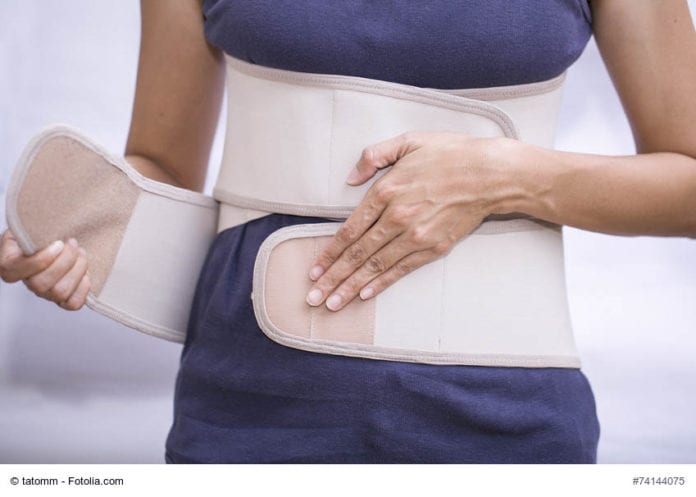After you land your first nursey job, you’ll sit through a long orientation. You’ll have just come back from lunch in a food coma, and will barely be paying attention to what they’re saying. And that’s when they talk to you about how important ergonomics are. They don’t want you to hurt your back or neck while working; and you’ll think to yourself “I’m young (maybe), healthy, smart, etc. I won’t hurt my back! Is this almost over?”
But wait! Stop!
You foolish, foolish nurse!
Let me paint a nursey picture for you...
| You’re running up and down the halls, frantically passing meds, doing turns, helping coworkers, and you go check on your 376 lb patient that’s here for cellulitis. He doesn’t look so hot. You grab a blood pressure, and it’s 60/40. His face and hands are blue. You pop the O2 probe on his finger and his sat is 72%. You barely feel his pulse.
As you reach for the ambu bag and connect it to the O2 and crank it all the way up, you scream for help. “CODE BLUE, ROOM 361!” They run to call the code overhead, someone else runs to get the code cart, and you’re in the room alone. He’s 376 lbs; his chest and head weigh more than you do. He’s slumped down in the bed. You pull the CPR level to get him flat, and use the sheet to pull him up because you have to do your jaw thrust to get that BVM on and sealed and that oxygen down into his lungs. And then you feel a pop and surge of pain in your lower back and straight down your legs. But you don’t care right now because your adrenaline is rushing and he’s literally dying in your hands. The second you get that mask on, your tech shows up. You tell her to get on his chest and start compressions while we wait for the troops to arrive. You heard his ribs crack, she’s pushing hard and fast enough, so you tell your tech, “Hey you’re pretty good at CPR!” while you’re bagging him. She says, “Thanks, I’d high-five you if I could!” And you think to yourself, “Ok, she’s awesome.” The troops arrive. Respiratory takes over for you, and you explain your patient’s story to the MD as they intubate him, get his pressure back up, and quickly take him to the ICU because he’s probably septic. You roll with them to the unit, give that nurse report, and start to walk back to your floor. Just like that. It’s over. It’s only been 14 minutes. And then you remember. OMG MY BACK. Your back. Your back. Your precious, precious back. |
The above situation happened to a friend that can never, ever work at the bedside again. She herniated and ruptured a few discs and has had surgery twice. She was only 29 years old when it happened.
Just like that, her bedside nursing career was done. She had only been at the bedside for six years. And she was darn good at it.
Thankfully, she was in grad school, and after her back surgery, she was able to get a job at the same (awesome) hospital and transitioned into a non-bedside role.
So, please, new nurses out there. . please, please protect your back. It is so valuable, precious, and fragile.
When you’re about to turn, lift, pull up, etc., your patient ..
- Make sure the bed is at an appropriate height – “Yes, Mr. Patient, I’ll make you wait 45 seconds to give you your IV pain meds because I’m not bending over your bed for 2 minutes while I push this Dilaudid ever so slowly.”
- If you have the time to use a lift, use it! This is especially important for the bariatric patients. Don’t even attempt to lift them.
- Make sure you know the weight limit of your lifts! I’ve had patients that weigh as much as 700lbs, so for everyone’s safety it’s important you know the weight limit
- When you do lift your patient, stick your butt out and use those legs. Your butt and legs should look like you’re doing a squat. You’ll look ridiculous, but you need to lift with your legs.
- Use proper ergonomics everyone!
Something a lot of people don’t realize is that most (if not all) inpatient hospital nursing job descriptions include a weight limit. Meaning, if your doctor says you can’t lift more than 50 lbs, you cannot work at the bedside.
I have a friend that injured her shoulder and her doctor would not clear her to work for almost a year. Most facilities will only hold your job for so long. This is a pretty rough predicament to find yourself in, especially after you’ve worked your but off in nursing school!
My recommendation is to get disability insurance. This is especially important if you’re like the rest of us, and have a mortgage and other bills to worry about, where if you went a few weeks without a paycheck, it would be devastating.
It’s usually a pretty cheap policy that many employers offer. Sign up for it when you sign up for your benefits. Yes, even if you’re 23 years old and healthy. Yes, even if you work out all the time.
One important thing to remember is that it is up to you to take the necessary steps to protect yourself from injury.
No one will do that for you.
Any nurses out there who did hurt their backs and have some advice for us?


